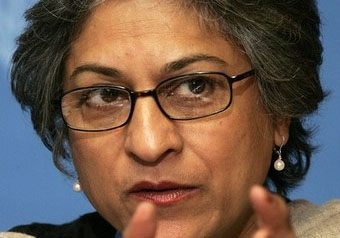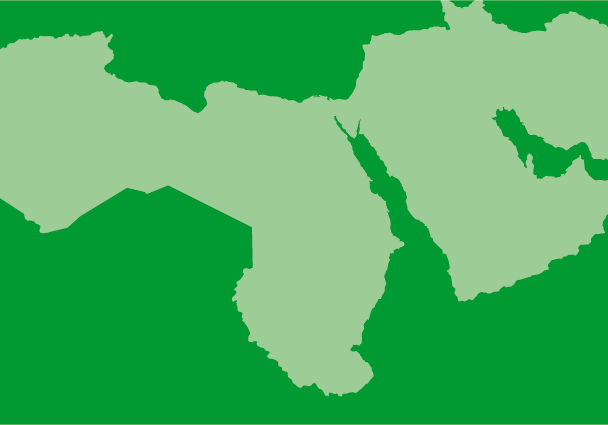
Pakistan: Attack on advocate Asma Jahangir
The ICJ’s Centre for the Independence of Judges and Lawyers intervened today with the Government of Pakistan, expressing its deep concern over the recent attack on Advocate Asma Jahangir.

The ICJ’s Centre for the Independence of Judges and Lawyers intervened today with the Government of Pakistan, expressing its deep concern over the recent attack on Advocate Asma Jahangir.

Today, the ICJ approved the decision of the Council of Europe to impose a sine die bar on Russia’s application to join the organization.
The ICJ stated that Russia’s application to join the Council of Europe is incompatible with the measures applied by its armed forces against non-combatants in Chechnya which violate both the European Convention on Human Rights and the Geneva Conventions.
The ICJ is concerned by reports of a growing number of international observers present in the region of Grozny, that systematic torture and beatings, as well as mock executions of Chechen prisoners, including civilians, are being carried-out by the Russian forces in Chechnya. Similarly, some reports seem to indicate that a number of dead bodies of Russian soldiers also showed signs of torture. Until these reports are verified, Russia’s membership application to the Council of Europe should be frozen.
The ICJ has already condemned the outrageous massive bombing of civilian targets in and around Grozny which has resulted in the death of thousands of non-combatants. The ICJ condemns the disproportionate use of force exerted on a daily basis by the Russian army since the beginning of the hostilities seven weeks ago.
The ICJ believes that the acceptance of Russia as a member State of the Council of Europe without proper consideration of the behaviour of its agents in Chechnya would result in the dampening of the European Convention on Human Rights and damaging of the credibility of the Council of Europe, an organization reputed for its promotion of the Rule of Law.

The time is right for an International Criminal Court, and the momentum is strong, says the ICJ.
The General Assembly of the United Nations will convene an Ad Hoc Committee at the U N Headquarters in New York from 3 to 13 April 1995, and, if necessary, from 14 to 25 August 1995, to discuss the establishment of such a court.
In June 1994, the International Law Commission (ILC) finalised its consideration of the issue and proposed a Revised Draft Statute to the General Assembly. During the last General Assembly meeting, States were requested to comment on the Statute by 15 March 1995.
The ICJ has some concerns on what is overall an excellent and realizable framework for an International Criminal Court.
ICJ Campaign International Criminal Court-non-legal submission-1995-eng (full text in English, PDF)
ICJ Campaign International Criminal Court-non-legal submission-1995-fra (full text in French, PDF)

The ICJ voiced its concern today over the fact that a small clique of States continues to systematically insist on trying to set limitations on the work of human rights defenders.
These defenders are vital to any society. It is they who promote and protect human rights and fundamental freedoms on the ground. Limiting their effectiveness is to limit human rights.
The 10th Session of the UN Working Group on Human Rights Defenders ended last Friday 27 January. But while confirming the need for greater protection for defenders, it has been a profound disappointment. A declaration reinforcing rights for persons and groups promoting the observance of human rights in all countries of the world has been the goal of ten years of annual meetings of the Working Group. And while there has been the persistent call from the international community for a rapid achievement of a “Defenders’ Charter,” this year, only three articles of the Charter were agreed to during the two-week session in Geneva.
Cuba, for instance, never lost one opportunity to suggest that the defenders should act “subject to national law” throughout every operative article ot the proposed Charter. Furthermore, one or two States suggested that defenders should be permitted to defend only “their” own rights. This position was maintained despite reminders from the ICJ and others that many victims are unable to advocate their own rights, such as children, the internally displaced, and the disappeared.
But the ICJ considers it encouraging that notwithstanding the negative attitude displayed by a minority of participants, a clear majority of States and NGOs recognized that the real objectives of the Working Group were sufficiently important to warrant continuation of this body’s efforts in the future. The ICJ hopes that the 1996 Session will be able to adopt a clear and unambiguous Declaration to ensure the protection of human rights workers throughout the world.

The ICJ condemns the bomb attack at Beit Lid bus stop junction. The “Islamic Jihad” claimed responsibility for this act which resulted in the killing of 18 Israeli soldiers and one civilian, and injured tens of other persons.
The ICJ is concerned about the potential repercussions of this attack. The ICJ already calls on the Government of Israel to exercise maximum restraint and avoid taking disproportionate and collective action against Palestinian civilians for acts they did not commit. The ICJ urges all parties to put an immediate end to the violence.